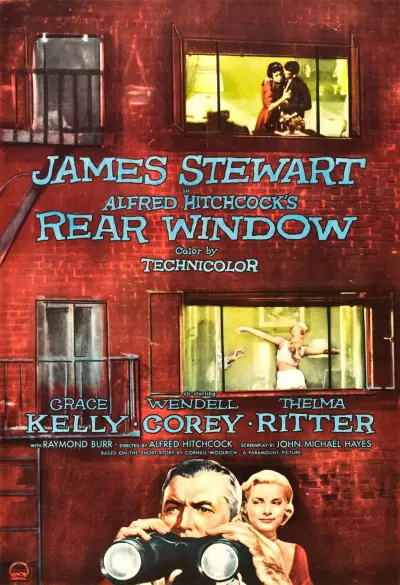
Alfred Hitchcock's 1954 film, "Rear Window," is a profound exploration of voyeurism, suspense, and urban society. The story, set in Greenwich Village, Manhattan, revolves around L.B. "Jeff" Jefferies, a photographer immobilized by a broken leg, who becomes an unintentional voyeur of his neighbors' lives. This diverse ensemble includes a lonely woman, a newlywed couple, a dancer, and a jewelry salesman with a bedridden wife.
The plot intensifies as Jeff, with the help of his girlfriend Lisa Fremont and a nurse named Stella, grows suspicious that his neighbor, Lars Thorwald, has murdered his wife. His belief is fueled by observing Thorwald's ominous activities, such as disposing of a large trunk and cleaning a knife and handsaw. Despite the doubts of a New York City Police detective, the mystery deepens following the death of a neighbor's dog.
"Rear Window" transcends its genre, presenting a deeper narrative on human curiosity and the allure of voyeurism. The film implicates its audience in Jeff's voyeurism, creating a shared sense of complicity and guilt. Film theorists like Laura Mulvey and John Belton have highlighted these themes, pointing out the film's examination of the spectacle of observation and its inherent allure. François Truffaut's interpretation further adds depth, likening the courtyard to the world, the photographer to a filmmaker, and binoculars to a camera.
The climax of the film illustrates the dual nature of voyeurism. While Jeff watches from his window, Lisa risks her life by entering Thorwald's apartment in search of clues. This scene vividly portrays the tension between curiosity and its potential perils, showcasing both the constructive and destructive facets of voyeurism. As noted by Robin Wood, Jeff's character development is intimately tied to his voyeuristic behavior, adding layers to his character and the film's moral landscape.
In conclusion, "Rear Window" is more than a suspense thriller; it's a critical commentary on human nature and societal dynamics. Its exploration of voyeurism, set against the backdrop of urban isolation and neighborly interactions, cements it as a timeless classic, continuously engaging and resonating with audiences and critics alike.


